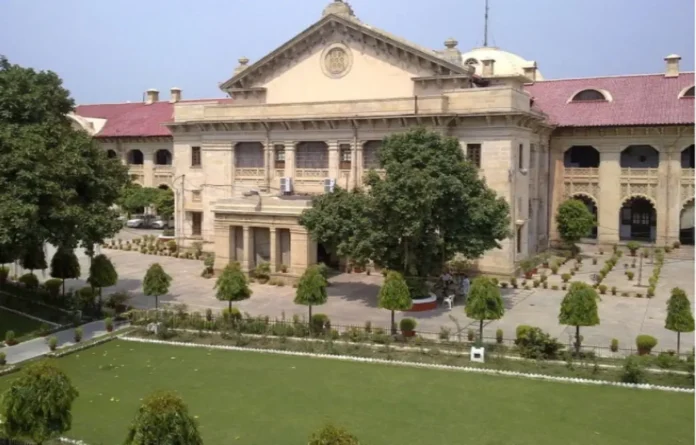The Allahabad High Court while allowing an appeal said that money may always be short to fulfill all human needs, the Courts may not look at the pay package of the parties alone to determine the amount of alimony that would be awarded.
The Division Bench of Justice Saumitra Dayal Singh and Justice Donadi Ramesh passed this order while hearing an appeal filed by Smt Kiran Gupta and Another.
The appeal has been filed under Section 19 of the Family Court Act, 1984 arising from the order dated 14.09.2007 passed by Principal Judge, Family Court, Kanpur Nagar in Case (Smt Kiran Gupta and another Vs. Shree Ramji Gupta), whereby the Court below has passed a decree under Section 25 of the Hindu Marriage Act, 1955 providing for lump sum alimony Rs 1,40,000.
At the same time, it has adjusted to Rs 38,000 granted to Km Astha under the earlier decree dated 18.7.1996, whereby the divorce Case had been decreed under Section 13 of the Act on the ground of cruelty.
The Court noted that,
Upon hearing counsel for the parties, it transpires that the parties were married on 18.6.1993. Their daughter Astha was born in 1994. She would be about 30 years of age. The parties separated on 8.8.1994. During the period of separation, under order passed under Section 125 Cr.P.C on 06.06.1995, maintenance at the rate of Rs 500/- (in all), had been awarded to the appellants.
Further, an order dated 17.07.2000 under Section 127 Cr.P.C that amount of monthly maintenance was revised to Rs 1000/- per month (collectively). While the recoveries may have remained pending, compromise has also been disclosed between the parties.
The divorce decree granted in favour of the respondent was confirmed by the Court on 23.03.1999 upon dismissal of First Appeal.
In such circumstances the Court below has vide its order dated 14.09.2007 provided for lump sum alimony at the rate of Rs 1,40,000/-, However, it has provided for deduction of Rs 38,000/- paid by the respondent to Km Astha.
As to the employment status of the parties, it has been disclosed that the appellant no1 had earlier worked as a private tuition teacher. However, she did not have a permanent job. On the other hand, the respondent has retired from the post of Clerk at District Court Kanpur Nagar in 2022. He is also disclosed to have remarried after dismissal of the First Appeal. He has three children born from the second marriage.
Manish Tandon, counsel for the respondent would state that the respondent has two siblings with special needs to take care of. Also, he has a widowed sister living with him.
He further submitted that the respondent has discharged all his legal liabilities towards appellants. Considering that his pay is about less than Rs 7500, the Court below has computed the alimony claimed, adequately at Rs 1,40,000.
The Court observed that in the entirety of facts and circumstance where the marriage between the parties survived only for three years and they have remained separated since then and also considering the fact that the respondent remarried, in accordance with law giving rise to his further responsibilities and financial liabilities, as also considering the fact that earlier the respondent was saddled with the liabilities under Section 125 Cr.P.C, primarily, we do not find any good ground to interfere with the order of the award of maintenance of permanent alimony to the extent it has been quantified to Rs 1,40,000. In that, we also take note of the compromise entered into between the parties as was noted by the Principal Judge, Family Court, Kanpur Nagar in his order dated 13.01.2011.
The Court found force in submission advanced by the counsel for the appellants that the Court below has erred in deducting Rs 38000 from the amount of permanent alimony awarded to the appellant no 1. Whatever was paid to the daughter born to the parties, may not have been adjusted against the amount payable to the appellant no1.
On the suggestion of the Court, Manish Tandon, counsel for the respondent states that the respondent is willing to pay a further amount of Rs 50,000 to the appellants against the deduction made by the Court below.
“Let that amount be paid out within a period of one month through deposit made before the Court below.
The amount so deposited may be released in favour of appellant no1 subject to both appellants giving an undertaking before the Court below to withdraw from all cases/ proceedings instituted against the respondent include those seeking more money either towards alimony or maintenance and further undertaking not to institute any other proceeding civil or criminal. If no such undertaking is furnished within a period of four months, the amount may be returned to the respondent forthwith,” the order reads.
With the above observations, the Court allowed the appeal.


